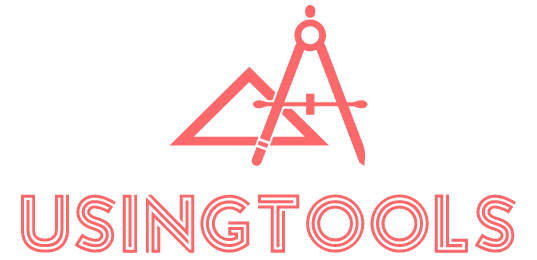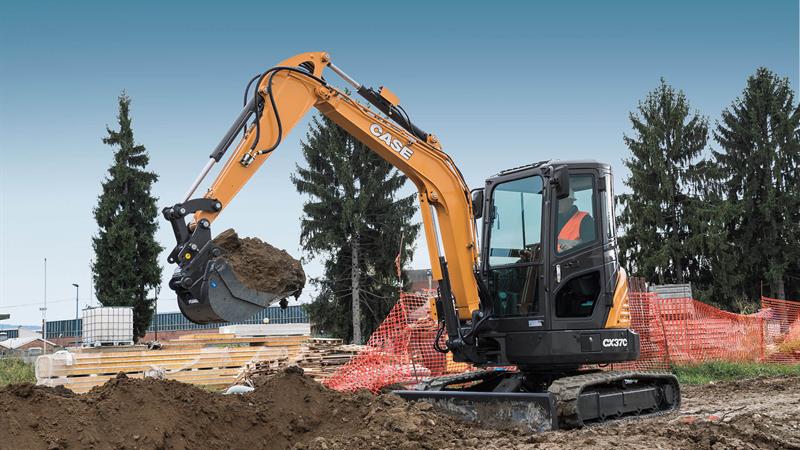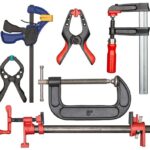A mini digger, also known as a mini excavator, is a compact excavating machine that is used for digging trenches, holes, foundations, and other excavation projects where space is limited. Mini diggers have tracks instead of wheels and feature an arm (boom) with a bucket or other attachment on the end for scooping and moving dirt.
Mini diggers are much smaller and more maneuverable than full-sized excavators. They are designed to fit through standard doorways and gates, allowing them to access backyard and indoor projects. Most mini diggers weigh under 10,000 pounds, with many models coming in between 1,500 – 4,000 pounds. They range in size from micro diggers less than 3 feet wide to large 10-12 foot models. The smaller the machine, the better it can work in tight access areas.
Mini diggers have become a popular rental item for homeowners and contractors to use for smaller residential and commercial excavation jobs. They provide an affordable and efficient alternative to doing the work manually.
Table of Contents
Average Mini Digger Rental Costs
The average rental cost for a mini digger can vary quite a bit depending on the size, features, and rental company. Here are some general guidelines for average rental rates:
- Hourly Rates – Expect to pay anywhere from $50 – $150 per hour for a mini excavator rental. Smaller 1-2 ton machines may rent for $50-75/hour while larger 5-10 ton excavators can cost $100-150/hour. Rates may be higher in some major metro areas.
- Daily Rates – Daily rental rates typically range from $250 – $600 for a mini excavator. You’ll get better value renting for a full day vs hourly. One day rates for a small mini may be around $250-350 while a medium sized 5 ton machine could be $450-600 per day.
- Weekly Rates – Weekly rentals offer the best value, with rates ranging from $1200 – $2500 per week depending on the size. Expect to pay around $1200-1500 for a 1-2 ton mini digger rental per week. Larger excavators may go for $2000-2500 per week.
Keep in mind rental rates can fluctuate based on seasonal demand as well. Renting in the busy spring/summer months may be more expensive than the slower winter season. Always compare rates across multiple rental companies as prices can vary significantly.
Size of the Mini Excavator
The size of the mini excavator is one of the main factors that impacts rental costs. Mini excavators are available in different sizes, ranging from 1-ton models up to 10-ton models. The smaller 1-2 ton excavators are very compact and maneuverable, making them well suited for use in confined spaces like small yards and gardens. However, they have less digging depth, power, and stability compared to larger models.
Larger mini excavators in the 5-10 ton range are more powerful and can handle tougher digging jobs, excavating deeper trenches and moving heavier materials. However, they are bulkier and may have difficulty accessing tighter areas. Their extra capabilities also make them more expensive to rent.
In general, you can expect rental rates to go up with the size of the mini excavator. The small 1-2 ton models may rent for $200-300 per day, while the larger 5-10 ton excavators could cost $400-600 per day. Consider how much power and performance you’ll need for the planned work when deciding on excavator size. Bigger is not always better if it adds unnecessary rental costs for capabilities that won’t be fully utilized. Carefully match the excavator size to the scope of your project.
Weight of the Mini Excavator
The weight of the mini excavator is a major factor in determining rental costs. Heavier machines typically cost more to rent. This is because the increased weight usually correlates with a larger engine size, more power, and ability to handle tougher jobs.
Mini excavators are available in different weight classes, typically ranging from 1 to 10 tons. The most commonly rented sizes for residential jobs are 1-3 tons. Lighter 1-2 ton excavators may rent for $200-300 per day, while heavier 4-5 ton excavators can cost $400-600 per day.
Heavier excavators also often use more fuel. Their larger engines consume fuel at faster rates, so fuel costs are higher. The machine’s weight also impacts transport costs if delivery and pickup is needed. Heavier equipment requires a larger truck for transporting, which costs more for the rental company and those fees may be passed onto the customer.
When estimating your rental costs, pay close attention to the machine’s operating weight. The heavier it is, the higher your daily rental rates are likely to be. Make sure you don’t get too large of an excavator for your needs. A lighter 1-2 ton machine is often adequate for residential jobs, but a 5-ton excavator will rack up bigger rental and fuel bills.
Attachments and Accessories
Mini diggers can be outfitted with various attachments and accessories for specialized tasks. This adds to the cost of renting a mini digger but provides more versatility. Common attachments and accessories include:
Buckets – A standard bucket for digging and moving soil costs around $50-100 per day. More heavy-duty buckets with teeth or side-cutters can cost $150-200. Specialty buckets like clean-up or ditching buckets cost $75-150.
Augers – Auger drill bits to bore holes cost around $100-150 per day depending on diameter. Power auger heads cost $150-300 depending on size.
Breakers – Hydraulic breakers for demolition and breaking up concrete or asphalt cost $150-300 per day. Vibrating plate compactors are $100-200.
Trenchers – Trenching buckets to dig drainage or utility trenches cost $150-250 per day. Narrow buckets for landscaping trenches are $100-150.
Grapples – Grapples for lifting and moving logs, brush or debris cost $100-200 per day. Heavy-duty grapples with rotators run $250-400.
Levelers – Box blades for grading and leveling dirt or gravel cost around $100-150 per day. Angle blades or rippers are also available.
Stump Grinders – Stump grinder attachments cost $150-250 per day depending on size and power.
Hammers – Hydraulic hammers for driving posts or stakes cost $100-150 per day. Vibratory pile drivers run $200-300.
Forks – Pallet forks for lifting and moving materials cost around $50-100 per day. Heavy duty forks are $150-200.
So attachments and accessories can significantly add to the daily rental cost of a mini digger. It’s important to consider what features you need for the job.
Delivery, Pickup and Transport
Renting a mini digger often involves additional costs for delivery, pickup, and transport between job sites. Here are some key factors that can impact these costs:
- Delivery Fees – Most rental companies charge a delivery fee to bring the mini digger to your job site. This can range from $50-$150 each way depending on distance.
- Pickup Fees – There is usually a pickup fee charged when the rental company comes to retrieve the mini digger from the job site. Expect to pay a similar amount to the delivery fee.
- Transport Fees – If you need to transport the mini digger between multiple job sites during the rental, there will likely be a transport fee each time. This could be an hourly rate or flat fee.
- Mileage Charges – Some rental companies charge per mile for delivery and pickup based on the distance from their facility. The per-mile rate can vary but expect $1-$5 per mile.
- Fuel Surcharges – For longer delivery distances, fuel surcharges are common to account for the gas required for transport. This could add $50 or more to the delivery/pickup costs.
- Taxes – Local taxes may apply for delivery and transportation services. This varies by rental company and municipality.
When estimating total rental costs, be sure to account for all expected delivery, pickup and transportation fees. The convenience of delivery is offset by the additional costs, so weigh whether it’s more affordable for you to arrange pickup/transport if feasible. Discuss these options with the rental company when booking.
Insurance Costs
Renting a mini digger comes with liability and damage risks that need to be accounted for. Most rental companies will require renters to have insurance that covers the machine in case of theft, vandalism or damage. This ensures that the rental company is compensated for any issues with the equipment during the rental period.
In addition to requiring renters to have their own insurance, rental companies also offer damage waiver or loss damage waiver (LDW) coverage. This optional add-on acts as a deductible, limiting the renter’s liability in case the machine is damaged or stolen. Typically, the renter would be responsible for the first $500-$2,000 of damage if they don’t purchase the damage waiver. With the waiver, their liability is reduced to a smaller amount like $100-$250.
Damage waivers usually add 10-15% onto the base rental rate. While it increases costs, it can provide useful protection against expensive repairs or replacement, especially for first-time renters unsure of their digging abilities. Those with experience operating mini diggers may feel comfortable declining the waiver and taking on full liability.
When reviewing the full rental estimate, don’t overlook insurance costs. Factor in whether your existing policies provide sufficient coverage, and consider opting for the damage waiver for additional peace of mind. Taking the time to understand these supplementary fees can help prevent surprise costs after completing your rental.
Operator vs Self Hire
Hiring an operator with your mini digger rental will increase the cost, but can save you time and effort if you don’t have experience operating heavy machinery. Here’s a look at the key differences in cost:
- Operator hire – Most rental companies will charge an additional hourly or daily rate for an operator. This can range from $25-50 per hour depending on experience. The operator is responsible for transporting, operating, and maintaining the mini digger. This option avoids the learning curve of operating it yourself.
- Self hire – Renting a mini digger without an operator means you or someone on your team will operate it. The base rental rate is cheaper, but you take on liability for any damages. Operating a mini digger takes skill and experience. Lack of experience could lead to reduced efficiency, wear and tear, or accidents. Consider taking a training course first if new to mini diggers.
- Insurance differences – With operator hire, the rental company carries liability insurance on their employee. For self hire, you may need to purchase short term liability insurance or ensure your existing policies cover rental equipment operation. This can add to the overall cost.
The choice between hiring an operator or self operating depends on your team’s skill level and risk tolerance. An experienced operator is fastest and reduces liability, but costs more hourly. Self operating saves on the operator fees but you take on the risks. Evaluate both options to see which best fits your needs and budget.
When to Hire vs Buy
Deciding whether to hire or buy a mini digger is an important financial decision that depends on several factors. Here is an analysis of the key considerations:
Hiring
- Lower upfront costs – Only pay for the time you need the machine, avoiding large purchase costs
- No maintenance or repair costs – The rental company handles all maintenance and repairs
- Flexibility – Hire for short or long periods as needed, change equipment as required
- No storage space required – The rental company handles storage when not in use
- Newer models – Access well-maintained, late model equipment
Buying
- Cheaper for frequent long-term use – Owning is more cost effective if using for 6+ months per year
- Familiarity with the machine – Operators can get used to specific controls and features
- Customization – Can add attachments and accessories suited to your needs
- Resale value – Well maintained diggers hold reasonable resale value after 3-5 years
- Pride in ownership – Some satisfaction in owning equipment vs renting
Key Considerations
- How frequently will the digger be used? If less than 6 months per year, hiring is generally more cost effective
- What duration will it be used for? Short term projects suit hiring, longer term suit buying
- Will requirements change? If so, hiring allows switching sizes/models as needed
- Does storage and maintenance fit with operations? If not, hiring avoids these headaches
- What is the job size? Larger projects may justify buying, smaller ones favor hiring
Carefully weighing these factors allows determining the most cost efficient and practical option for your specific situation. Hiring tends to be better for infrequent, short term, or changing needs. Buying suits frequent, long term, consistent use.
Conclusion
Hiring a mini digger can be an affordable and convenient option for many small to medium-sized projects. The total cost to hire a mini excavator can range from $100 to $500 per day on average, depending on the size of the digger, rental duration, delivery fees, insurance, and whether you need an operator or can operate it yourself.
Small 1-2 tonne mini diggers typically cost $100-$250 per day to rent. Medium 3-5 tonne excavators range from $150-$400 per day. Larger 6-8 tonne machines can cost $300-$500 daily. Weeklong and monthly rates offer cheaper per day pricing.
The major factors determining mini digger rental costs are the machine’s size and weight capacity, rental duration, delivery and transport fees, damage waiver insurance, and whether you hire an operator or operate it yourself. Self-operated rental is significantly cheaper.



